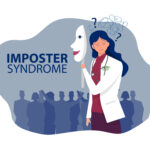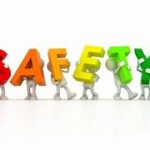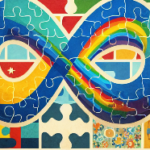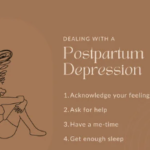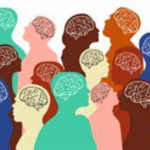Schizophrenia is one of the most misunderstood conditions ever, and this tends to spread fear and confusion about the condition. If you or anyone you know is suffering from this condition, understandably, hearing all the elaborate but bogus information about it can put your heart in a state of fear.
But there’s no need to be afraid. In this article, we’ll help you demystify the myths, present some accurate facts and show you how to detect some of the early warning signs so you can always be prepared.
Myths and Facts about Schizophrenia
Myth 1: People with Schizophrenia have Multiple Personalities
Fact: Schizophrenia can very easily be mistaken for Dissociative Identity Disorder (DID), however, they are not the same. With DID, patients deal with multiple personalities, but with schizophrenia, patients experience hallucinations, hear voices, and may hold certain beliefs. But this doesn’t mean they have multiple personalities.
Myth 2: Schizophrenia Means People Are Violent
Fact: Despite the common misinterpretation created by the media, not every schizophrenic individual is violent. They are actually more likely to be victims of violence than they are perpetrators. If you see a violent schizophrenic, then the violence is most likely induced by some other factor like drug abuse but not schizophrenia itself
Myth 3: Schizophrenia Is Due to Poor Parenting
Fact: To be fair, schizophrenia is a multifactorial mental disorder that results from the genetic susceptibility of an individual combined with environmental experiences like trauma and drug abuse. Mistakes by parents do not result in schizophrenia; bad parenting won’t produce kids with this condition.
Myth 4: If a Parent Has Schizophrenia, His or Her Children Will As Well.
Fact: Though genetics indicate a predisposition, it does not automatically mean that if your parent has schizophrenia, you will, too. The risk is a bit greater, but it will also be influenced by environmental pressures.
Fact 5: Schizophrenics Aren’t Smart
Fact: Research has confirmed that some people with schizophrenia may experience difficulty sustaining their attention, learning and memory, but by no means does this suggest they are not intelligent. History is filled with creative and brilliant people who have had schizophrenia.
Myth 6: Schizophrenics Belong in Mental Care Facilities
Fact: Because of developments in the treatment and understanding of schizophrenia, most people no longer need to be kept locked away inside long-term mental institutions. Most live either on their own or in family/community housing situations.
Myth 7: Those Who Suffer from Schizophrenia Cannot Work
Fact: Having schizophrenia may impair one’s employment opportunities, but with proper medication and aid, they can have a stable job as long as it matches their strengths and limitations.
Myth 8: Laziness Comes from Schizophrenia
Fact: This mental illness can interfere with a person’s ability to manage tasks. However, failure to carry out duties is due to schizophrenia and not laziness. Therefore, individuals may need help with their day-to-day schedules.
Myth 9: Schizophrenia Strikes Suddenly
Fact: Several sufferers experience its symptoms gradually. Some of the early signs might include isolation, loss of interest in activities and other subtle behavioural changes.
Myth 10: It Has No Cure
Fact: Schizophrenia cannot be cured, but it can be treated. Medications, therapy and support can help people living with this condition cope better with their symptoms while still leading meaningful lives.
Key Facts about Schizophrenia
Psychosis Comes from Schizophrenia: Schizophrenia is a type of brain disease that affects the way someone thinks, acts, says what they feel, relates with others and sees life. This can cause severe disability in every aspect of one’s life, such as personal, family, social, educational and occupational functioning.
Stigmatization and Discrimination: The victims of schizophrenia often experience stigma, discrimination and denial of their rights by others which compounds their problem.
Lack of Care: Mental health specialist services remain inaccessible to over two-thirds of those suffering from psychosis globally. This gap underscores the need for better mental health care facilities.
Recovery: There are several effective treatments available, and at least 30% of schizophrenic patients will recover on completion.
Prevalence: 1% of people (about 2.2 million Americans) will have schizophrenia.
Subtypes of Schizophrenia: Paranoid, disorganized, catatonic, undifferentiated and residual are examples of five types of schizophrenia. Each subtype has distinctive attributes or symptoms.
Symptoms:
Positive Symptoms: These signs include delusions, hallucinations and catatonia, which is where the person maintains a rigid posture for a long duration.
Cognitive Symptoms: This entails having problems focusing attention and remembering things.
Negative Symptoms: These involve failure to display normal behaviours such as decreased energy and speech, lack of motivation, absence of emotions and withdrawal from family members and friends.
Causes: Though the exact cause is unknown, it is thought that genetics in combination with brain chemistry changes, abnormalities in the brain structure and environmental factors can contribute to schizophrenia development.
Onset: Schizophrenia manifests itself between the late teens and early twenties. However, women can develop it later in life, with a considerable number suffering from this disorder after 45 years.
Suicide Risk: Approximately one in ten individuals who suffer from schizophrenia kill themselves, which is usually aggravated by problems such as drug abuse or alcoholism.
Violence: However, as mentioned earlier, contrary to the stereotypes held by many people, most schizophrenics are not violent and prefer to be left alone.
Treatment: These include medication, therapy and occasionally hospitalization. They can reduce symptoms considerably and enhance the way of living.
Early Signs of Schizophrenia
Prodromal Stage
Research indicates that approximately 75% of individuals with schizophrenia go through a prodromal stage characterized by subtle mood changes, altered thoughts or subtle changes in behaviour prior to its full manifestation. These may occur weeks, months or even years before the onset and include:
- Changes in perception
- Problems with attention
- Problems with speech and movement
Early Signs in Children
Childhood-onset schizophrenia (COS) is rare but can be more severe than adult-onset. Early signs of childhood-onset schizophrenia can include:
- Social movement or language disturbances
- Learning disabilities
- Mood or anxiety disorders
- Auditory hallucinations (more common in children than delusions)
Early Signs in Teens
Early-onset schizophrenia (EOS) can start developing at any time in the course of development. It may appear without any warning and take different forms if not treated early enough. These symptoms include:
- Terrifying feeling that is continual
- Poor posture and slow gait
- Hypersensitivity to light and noise
- Auditory and visual delusions
- Delusion, paranoia, and mood swings
- Loneliness in one’s social life and absence of emotional expression.
Early Signs in Young Adults
The majority of schizophrenic patients develop their condition while they are young adults. Like teenagers with this disease, young adults show several signs, such as:
- Neglecting personal hygiene
- Disordered thoughts and speech acts
- Social withdrawal
- Photophobia & phonophobia (light/noise sensitivity)
- Actions or words that seem inappropriate for a social setting.
Early Signs in the Aged Population
Late-onset schizophrenia refers to people who acquire the illness after the age of 45 years. It mainly affects women more than men. This subtype includes:
- Extreme ideas about anyone being against them.
- Seeing things, touching things or smelling things that others do not.
- Less extreme disorganization.
How to Treat Schizophrenia
Should you or someone you love to suffer from schizophrenia, there are steps that can be taken towards reclaiming your life. Your treatment options could include:
- Drugs: These are able to sort out brain chemicals and thus minimize hallucinations and delusions.
- Psychotherapy: CBT (cognitive behavioural therapy) and other forms of psychotherapy may relieve symptoms and improve daily functioning.
- Assistance Programs: Close involvement with a service provider as well as family support will improve the result of the treatment.
Other Similar Conditions
Both schizophrenia and mood disorder symptoms, including depression or bipolar disorder, are included in schizoaffective disorder.
Repeatedly manipulating, exploiting, or violating the rights of others over a long period is the hallmark of antisocial personality disorder and anti-personality disorder. In this condition, there are episodes of mood swings ranging from extreme highs (mania) to depressive lows (depression).
Also, there are some common symptoms for both bipolar and borderline personality disorders, although they are different conditions.
Conclusion
Understanding schizophrenia is necessary to erode stigma and provide better help for its victims by demystifying certain beliefs, spotting early symptoms, and seeking essential medical intervention. People affected by schizophrenia can lead positive lives if they overcome the myths about this condition, recognize its early signs, and receive appropriate treatment. Early professional assistance is crucial if you or someone you know shows signs of schizophrenia to ensure a more favourable outcome.
If you’ve been searching for “health coaches near me,” consider exploring the wellness coaching and wellness programs at our wellness centre for more comprehensive support and personalized care. Our dedicated team is here to provide the guidance and support you need for a healthier, more balanced life. Visit our website to learn more about our services and how we can help you or your loved one on the path to wellness.


